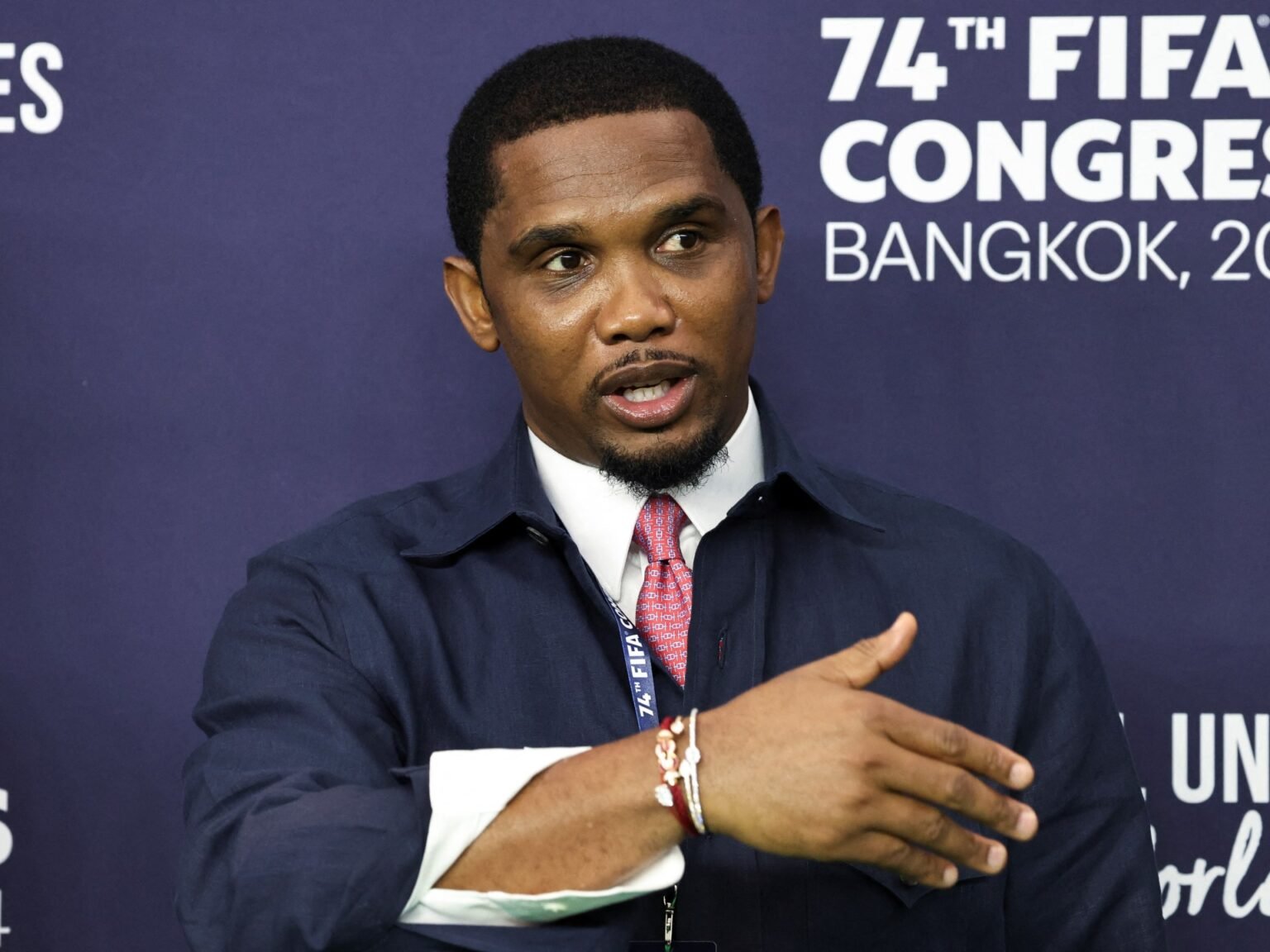The President of the Cameroon Football Federation (Fecafoot), Samuel Eto’o, has been banned from attending national team matches for six months due to his ‘offensive behaviour’ at a Women’s Under-20 World Cup match. Eto’o, a former Barcelona striker, has been in charge of Fecafoot since 2021 and will now be prohibited from all men’s and women’s games across different age categories. The disciplinary action was imposed by FIFA in relation to the FIFA Under-20 Women’s World Cup match between Brazil and Cameroon that took place in Bogota, Colombia on September 11, 2024. The specific details of the incidents leading to the ban were not disclosed by FIFA’s disciplinary committee, but Eto’o was found guilty of offensive behavior, violations of fair play principles, and misconduct towards officials during the game.
The charges against Eto’o stem from Cameroon’s last-16 game against Brazil, which ended with a 3-1 victory for the South Americans after extra time. Eto’o and the Cameroon delegation were reportedly upset over a penalty decision that resulted in Brazil’s equalizer during the match. Despite being suspended from attending any Cameroon matches – men or women and of any age category – Eto’o’s role as Fecafoot president remains unaffected. This is not the first time Eto’o has faced disciplinary action, as he was fined $200,000 in July for engaging in a brand deal with an online gambling firm, deemed an ethics violation by the Confederation of African Football. Additionally, Eto’o has been at odds with his country’s sports ministry over the appointment of Belgian Marc Brys as the men’s team coach earlier in the year, which he labeled as ‘illegal’.
Eto’o, a four-time African Player of the Year, is one of the most prominent football figures in Cameroon’s history, second only to Rigobert Song in terms of appearances for the national team. He achieved immense success during his club career, winning the Champions League four times with three different teams. Despite his achievements on the field, Eto’o has had several controversies off the pitch, including a filmed incident in 2022 where he was seen attacking a man outside a stadium during the FIFA World Cup in Qatar. These instances of misconduct have cast a shadow over his otherwise illustrious career and have led to disciplinary measures being imposed by football governing bodies.
The ban on Eto’o attending national team matches signals a serious consequence for his behavior at the Women’s Under-20 World Cup match, reflecting FIFA’s commitment to upholding fair play and respectful conduct in football. The decision to suspend Eto’o from all men’s and women’s games across various age groups underscores the severity of the violations attributed to him by FIFA’s disciplinary committee. Despite his suspension, Eto’o continues to serve as Fecafoot president, highlighting the complexities of managing both administrative and personal responsibilities in the world of professional football. It remains to be seen how Eto’o will respond to this latest disciplinary action and whether it will impact his future involvement in football governance and leadership roles within the sport.
The incident involving Eto’o at the Women’s Under-20 World Cup match serves as a reminder of the importance of respectful behavior and adherence to fair play principles in football. As a high-profile figure in the sport, Eto’o’s actions, both on and off the pitch, are closely scrutinized and have consequences that reflect on his reputation and standing within the football community. The ban imposed on Eto’o by FIFA underscores the need for all individuals involved in the game, regardless of their status, to conduct themselves with integrity and sportsmanship at all times. Moving forward, it will be crucial for Eto’o to reflect on his behavior and strive to uphold the values of respect and fair play that are integral to the spirit of football.












